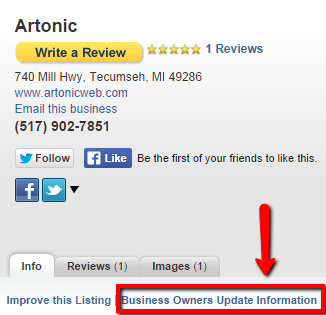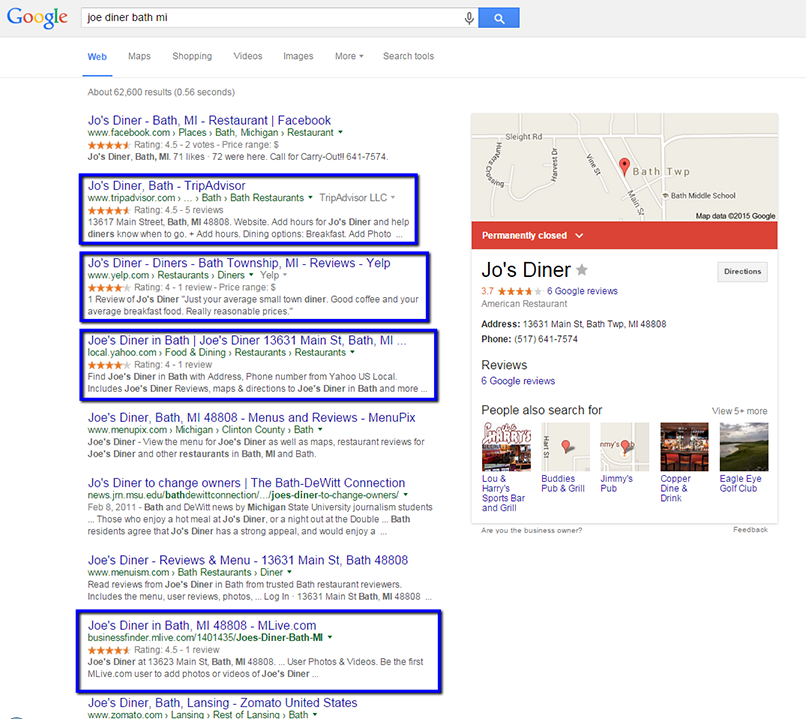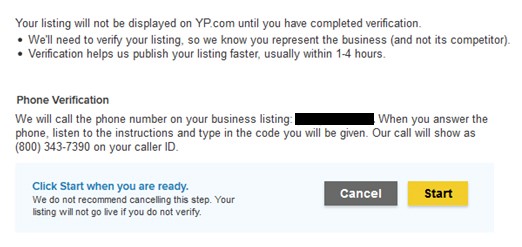We all know that phone books in the traditional sense are quickly becoming a thing of the past. Not only are phone books space-consuming, but they’re rarely used by consumers today. If you’re a business owner or marketing manager, this decline in phone book usage can be troubling.
For years, your business likely relied heavily on representation in the yellow pages. The good news is that consumers still use business directories – they just use them online.
According to a 2013 poll conducted by AT&T, 50 percent of local searches occur on directories and apps, as opposed to search engines! That’s a lot of people using online directories!
Guess What? You’re Listed!
Chances are good that your business is already listed extensively online, even if you haven’t created a single listing! Do a quick Google search of your business and you may be surprised by what pops up.
How is this possible? InfoGroup, Neustar Localeze, and Acxiom, the three big online data aggregators, gather information from anything they can get their hands on to populate their databases: everything from phone and utility records, to printed phone books, to business registration information. Online directories, such as Yellowpages.com and Yelp.com, then take this data and auto-populate a business listing based on the information provided by the aggregators.
Trouble in Paradise
Unfortunately, the data gathered and distributed by the big aggregators is often times outdated or incorrect. If you, as a business owner, do not manually update important information, such as business name, address, or phone number (NAP info) online, it could be toxic for your company. When potential customers are not able to get in touch with your business because the online information is incorrect, then you could be losing out on a heck of a lot of money.
Even Worse
Not only are incorrect online directory listings bad for business, but they are also bad for SEO. When Google and other search engines crawl for information on a specific business, they like to see consistency. If there are multiple addresses, business names, etc., for your business online, the conflicting information will confuse the search engine, which could potentially harm your company’s online presence.
Take Control
In order to ensure that your business performs well online (and off-line), it’s up to you to take control of your directory listings. Conduct an audit on your directory listings by using Moz Local, a free tool that compiles many of your existing business listings in one place. You can also manually look up your listings. Hubspot put together a helpful list of top local directories to get you started. If you discover any problematic online directory listings for your business (say, a listing with the wrong address or no link to your website), here is how to resolve those issues.
First, Claim Your Online Directory Listings
Claim all online listings to ensure that you have full control over the information on any given directory.
- Begin with the data aggregator databases: InfoGroup, Neustar Localeze, and Acxiom. Claim your business listings here to cease the distribution of incorrect information.
- If you take a look at the page where your business is listed on a given directory, you will likely be able to find a link that says something along the lines of “Business Owners, Update Your Information Here” or “Claim this listing.” Find this link and follow the directions provided.
 What to Expect: To ensure that you are actually the business owner, and not a competitor attempting to sabotage the listing, some directories make you jump through a few hoops before granting full access.
What to Expect: To ensure that you are actually the business owner, and not a competitor attempting to sabotage the listing, some directories make you jump through a few hoops before granting full access.
- When going through the claiming process, you can expect to be asked to do some of the following tasks:
- Create a business owner account
- Receive a verification call & code
- The directory may call your business and provide you with a code to enter online (usually a recorded voice speaks a verification number that you can type into the directory). This helps to ensure that your phone number truly is associated with your business.
- Provide evidence that you are the business owner, such as a DBA, recent phone bill, etc.
All directory claiming processes differ. If you have a question or problem, contact customer service at the directory in question and they can assist you through the process.
Next, Optimize the Information
Once you claim your online directory listing, make sure that every single bit of information is correct and consistent.
TIP: Create a document, and type your official business information in that document. Include official business name (Yes, things like commas and “Inc” at the end matter!), phone number (local is best if you’re a local business), address, and website URL. Double check it! Now, copy and paste that exact info into each directory to ensure that all listings are consistent.
In addition to correcting or updating NAP info, fill out every possible field that the directory allows. This can include photos, a business description, hours, and more. A complete business listing provides potential customers with more than enough information to decide if they want to choose your services. As an added bonus, a fully optimized listing helps to improve SEO!
Contact Artonic
If you want Artonic to handle this, contact us today. Our marketing team has extensive experience managing online directory listings for all types of clients. Seriously, we’ve seen it all!
Phone: (517) 902-7851
Email: [email protected]
Want More?
Be on the lookout for an upcoming blog about “directory dangers” in which we will dissect some common problems business owners run into when managing directory listings. Here we will discuss directory services like Yext, premium listings, and more!
Sources: Moz




